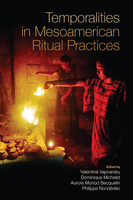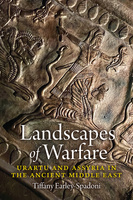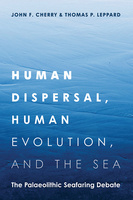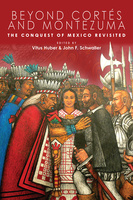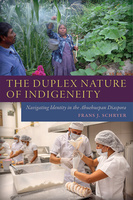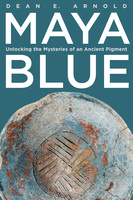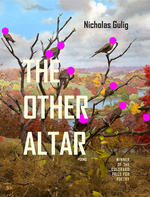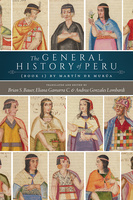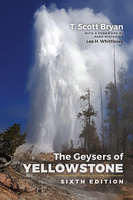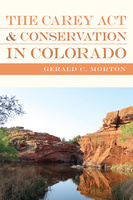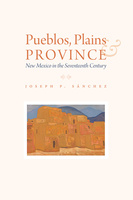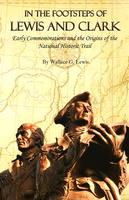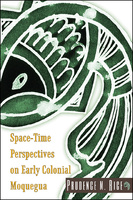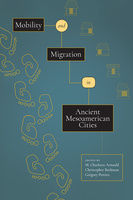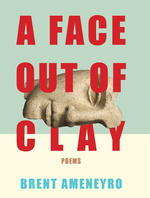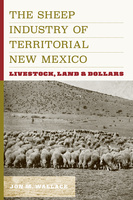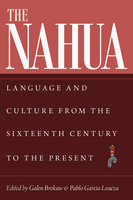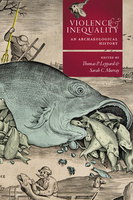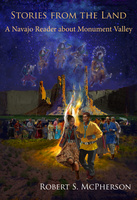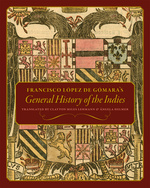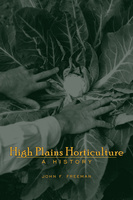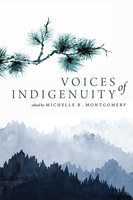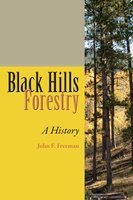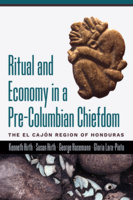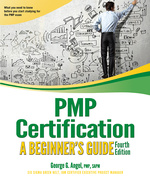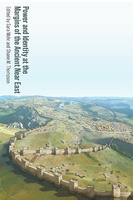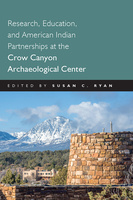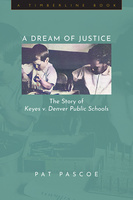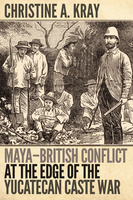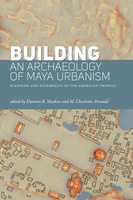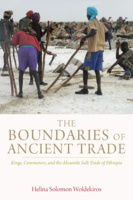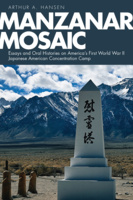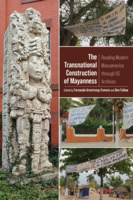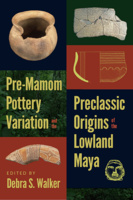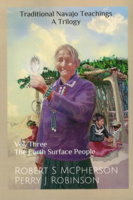Latino Colorado
The Struggle for Equality in the Centennial State
Mexican Americans and other Latinos make up more than 22 percent of Colorado’s population, play a vital role in its major economic sectors, and are becoming a political force to be reckoned with. Yet most official histories of the state mention them only in passing. Latino Colorado fills this gap in the literature by examining the multifaceted experience of Latinos in Colorado from the nineteenth century to the present, from the old Hispano families of southern Colorado to the new arrivals, and from metro Denver to the state’s rural areas of the Western Slope and Eastern Plains.
Exploring the Mesoamerican Subterranean Realm
I Woke a Lake
I Woke a Lake faces the anxieties of climate change, extinctions, and political chaos. Susan McCabe weaves together the fragile fabric of worlds imagined and lost, both palpable and present.
Bats of the Rocky Mountain West
Natural History, Ecology, and Conservation
Temporalities in Mesoamerican Ritual Practices
Temporalities in Mesoamerican Ritual Practices examines the time-based dimensions of ritual activities in past and present Mesoamerican societies, including the prehispanic, colonial, and modern periods.
Landscapes of Warfare
Urartu and Assyria in the Ancient Middle East
Landscapes of Warfare offers a detailed examination of the Urartian empire. Situated in the highlands of Turkey, Armenia, and Iran and less known than its rival, the Neo-Assyrian empire, Urartu presents a unique case of an empire whose power was not centralized in cities but was instead distributed among mountain fortresses.
Human Dispersal, Human Evolution, and the Sea
The Palaeolithic Seafaring Debate
Human Dispersal, Human Evolution, and the Sea is the first book-length treatment of what has become known as the global Palaeolithic seafaring debate.
Beyond Cortés and Montezuma
The Conquest of Mexico Revisited
Beyond Cortés and Montezuma examines both European and Nahuatl texts and images that shed light on the complex narrative of contact and the ensuing conflict, negotiation, and cooperation that continued well after the colonial period.
The Duplex Nature of Indigeneity
Navigating Identity in the Ahuehuepan Diaspora
The Duplex Nature of Indigeneity is a detailed ethnography centered on Ahuehuepan, a Mexican town in the Alto Balsas region of the state of Guerrero, where an exodus of more than half the population to the United States and other parts of Mexico has altered both livelihoods and social identities.
Maya Blue
Unlocking the Mysteries of an Ancient Pigment
One of the great technological achievements of the ancient Maya, Maya Blue is one the world’s most unusual ancient pigments. In Maya Blue, Dean E. Arnold offers a comprehensive history of its study for almost a century, filled with personal anecdotes drawn from his decades of work uncovering the Maya knowledge of its constituents, its ancient sources, and how it was made—including previously unknown methods.
The General History of Peru
Book 1
Mercedarian friar Martín de Murúa’s General History of Peru (Historia General del Piru, 1616) is one of the most significant Spanish chronicles of Inca history and Peru’s early colonial period yet to be published in English. Written over several decades and approved by King Philip III for publication, Murúa’s magnificent manuscript disappeared from public view for nearly 350 years until its publication in 1964. Here, translators Brian S. Bauer, Eliana Gamarra Carrillo, and Andrea Gonzales Lombardi present the first English translation of Book 1 of Murúa’s comprehensive three-part work.
The Geysers of Yellowstone
Sixth Edition
This new edition of The Geysers of Yellowstone is the most up-to-date and comprehensive reference to the geysers of Yellowstone National Park, describing in detail each of the more than five hundred geysers in the park.
The Carey Act and Conservation in Colorado
The Carey Act and Conservation in Colorado is an environmental history of the endless missteps and unforeseen consequences that characterized Colorado’s participation in the Carey Act—an 1894 federal law that granted one million acres of desert-classified public land to each western state for private irrigation development and settlement.
Pueblos, Plains, and Province
New Mexico in the Seventeenth Century
In Pueblos, Plains, and Province Joseph P. Sánchez offers an in-depth examination of sociopolitical conflict in seventeenth-century New Mexico, detailing the effects of Spanish colonial policies on settlers’, missionaries’, and Indigenous peoples’ struggle for economic and cultural control of the region.
Growing the Taraco Peninsula
Indigenous Agricultural Landscapes
Growing the Taraco Peninsula is an examination of long-term human-environmental interactions through agriculture among Indigenous communities of the Taraco Peninsula, Bolivia, located on the shores of Lake Titicaca in the Andes.
In the Footsteps of Lewis and Clark
Early Commemorations and the Origins of the National Historic Trail
Mobility and Migration in Ancient Mesoamerican Cities
Mobility and Migration in Ancient Mesoamerican Cities is the first focused book-length discussion of migration in central Mexico, west Mexico and the Maya region, presenting case studies on population movement in and among Classic, Epiclassic, and Postclassic Mesoamerican societies and polities within the framework of urbanization and de-urbanization.
The Sheep Industry of Territorial New Mexico
Livestock, Land, and Dollars
The Sheep Industry of Territorial New Mexico offers a detailed account of the New Mexico sheep industry during the territorial period (1846–1912) when it flourished.
The Nahua
Language and Culture from the 16th Century to the Present
Revealing the resiliency of Nahua culture and language while highlighting the adaptations and changes they have undergone over the centuries, The Nahua demonstrates that Nahuatl remained a vibrant and central language well after European contact and into the twenty-first century, and its characteristic features can provide insight into nuanced aspects of Nahua culture and history.
The Colorado Trail in Crisis
A Naturalist’s Field Report on Climate Change in Mountain Ecosystems
The Colorado Trail in Crisis addresses the sweeping transformation of western forests and wilderness ecosystems affected by climate change.
The Colorado Trail in Crisis
A Naturalist's Field Report on Climate Change in Mountain Ecosystems
The Colorado Trail in Crisis addresses the sweeping transformation of western forests and wilderness ecosystems affected by climate change.
Power, Prayers, and Protection
A Cultural History of the Utah San Juan River Navajo
Violence and Inequality
An Archaeological History
Violence and Inequality explores the deep-time archaeological relationship between violence and inequality, focusing on prehistoric archaeology’s contribution to the understanding of the human dynamics among coercive force, aggression, and the state.
Francisco López de Gómara's General History of the Indies
This work is the first English translation of the entire text of part one of sixteenth-century Spanish historian Francisco López de Gómara’s General History of the Indies.
The Friar and the Maya
Diego de Landa and the Account of the Things of Yucatan
The Friar and the Maya offers a full study and new translation of the Relación de las Cosas de Yucatán (Account of the Things of Yucatan) by a unique set of eminent scholars, created by them over more than a decade from the original manuscript held by the Real Academia de la Historia in Madrid.
Birds and Beasts of Ancient Mesoamerica
Animal Symbolism in the Postclassic Period
Birds and Beasts of Ancient Mesoamerica links Precolumbian animal imagery with scientific data related to animal morphology and behavior, providing in-depth studies of the symbolic importance of animals and birds in Postclassic period Mesoamerica.
High Plains Horticulture
A History
Voices of Indigenuity
Voices of Indigenuity collects the voices of the Indigenous Speaker Series and multigenerational Indigenous peoples to introduce best practices for traditional ecological knowledge (TEK).
Last Paper Standing
A Century of Competition between the Denver Post and the Rocky Mountain News
Last Paper Standing chronicles the history of competition between the Denver Post and Rocky Mountain News—from both newspapers’ origins to their joint operating agreement in 2001 to the death of the News in 2009—to tell a broader story about the decline of newspaper readership in the United States.
Black Hills Forestry
A History
Ritual and Economy in a Pre-Columbian Chiefdom
The El Cajón Region of Honduras
This volume examines the organization and ritual economy of a pre-Columbian chiefdom that developed in central Honduras over a 1,400-year period from 400 BC–AD 1000.
PMP Certification
A Beginner's Guide, Fourth Edition
Project management is in everything we do, from our personal lives to our professional careers. It is the fastest growing profession in the world and the skills learned in this book can be used for any sort of project, large or small: setting up a small business; planning a wedding, family vacation, company picnic, and major events; and organizing construction or aerospace projects.
Power and Identity at the Margins of the Ancient Near East
Power and Identity at the Margins of the Ancient Near East rethinks the dichotomy between antiquated terms such as “core” and “periphery,” explores lived realities in the margins of central authority, and centers those margins as places of resistance and power in their own right.
Research, Education and American Indian Partnerships at the Crow Canyon Archaeological Center
This volume celebrates and examines the Crow Canyon Archaeological Center’s past, present, and future by providing a backdrop for the not-for-profit’s beginnings and highlighting key accomplishments in research, education, and American Indian initiatives over the past four decades.
A Dream of Justice
The Story of Keyes v. Denver Public Schools
A Dream of Justice is Colorado state senator and former teacher Pat Pascoe’s firsthand account of the decades-long fight to desegregate Denver’s public schools.
The Legacies of The Basin of Mexico
This volume celebrates the continuing impact of the most notable contributions from The Basin of Mexico: The Ecological Processes in the Evolution of a Civilization by William T. Sanders, Jeffrey R. Parsons, and Robert S. Santley.
Maya-British Conflict at the Edge of the Yucatecan Caste War
Maya-British Conflict at the Edge of the Yucatecan Caste War interrogates the 1862 alliance forged between the San Pedro Maya and the British during the Caste War of Yucatán (1847–1901).
Building an Archaeology of Maya Urbanism
Planning and Flexibility in the American Tropics
The Boundaries of Ancient Trade
Kings, Commoners, and the Aksumite Salt Trade of Ethiopia
Drawing on rich ethnographic data as well as archaeological evidence, The Boundaries of Ancient Trade challenges long-standing conceptions of highly centralized sociopolitical and economic organization and trade along the Afar salt trail—one of the last economically significant caravan-based trade routes in the world.
Scouting for the Bluecoats
Navajos, Apaches, and the U.S. Military, 1873–1911
Manzanar Mosaic
Essays and Oral Histories on America's First World War II Japanese American Concentration Camp
The Transnational Construction of Mayanness
Reading Modern Mesoamerica through US Archives
The Transnational Construction of Mayanness explores how US academics, travelers, officials, and capitalists contributed to the construction of the Maya as an area of academic knowledge and affected the lives of the Maya peoples who were the subject of generations of anthropological research from the mid-nineteenth century to the present.
Pre-Mamom Pottery Variation and the Preclassic Origins of the Lowland Maya
Pre-Mamom Pottery Variation and the Preclassic Origins of the Lowland Maya summarizes archaeological researchers’ current views on the adoption and first use of pottery across the Maya lowlands.

